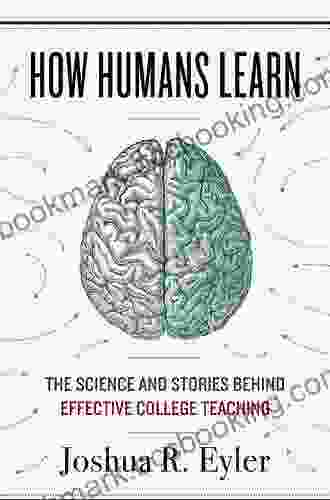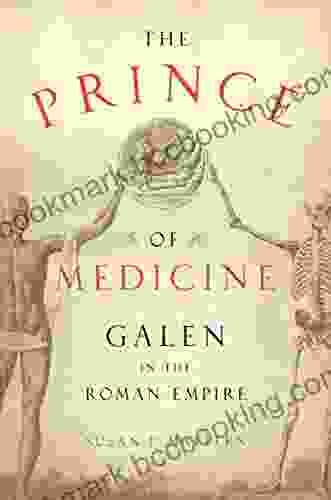Unleashing Excellence in College Teaching: The Science and Stories Behind Effective Practice

The pursuit of higher education is a transformative journey that requires a dynamic and engaging learning environment. College teaching plays a pivotal role in shaping the intellectual, social, and professional development of students. However, becoming an effective college teacher is not merely a matter of delivering lectures and assigning readings. It requires a deep understanding of the science and stories behind effective teaching practices.
This article explores the multifaceted world of college teaching, delving into the research-based principles and inspiring narratives that can empower educators to create transformative learning experiences. By examining the latest scientific findings, sharing practical strategies, and showcasing successful classroom transformations, we aim to provide a comprehensive resource for educators seeking to enhance their practice.
Decades of educational research have yielded a wealth of evidence-based practices that can significantly improve student learning outcomes. These principles, rooted in cognitive psychology, educational theory, and pedagogical innovation, provide a solid foundation for effective college teaching.
4.7 out of 5
| Language | : | English |
| File size | : | 862 KB |
| Text-to-Speech | : | Enabled |
| Screen Reader | : | Supported |
| Enhanced typesetting | : | Enabled |
| Word Wise | : | Enabled |
| Print length | : | 293 pages |
Active learning methodologies shift the focus from passive listening to active participation. Through hands-on activities, problem-solving exercises, and collaborative discussions, students are actively engaged in the construction of their own knowledge and understanding.
- Cognitive Processing: Active learning promotes deeper cognitive processing, as students engage with the material in multiple ways, facilitating memory retention and conceptual comprehension.
- Motivation and Engagement: By actively participating in the learning process, students feel more invested in their education, resulting in increased motivation and engagement.
- Collaborative Learning: Collaborative learning activities foster teamwork, communication skills, and the ability to learn from diverse perspectives.
Feedback is an essential component of effective teaching, providing students with valuable insights into their performance and guidance for improvement. Timely and specific feedback can help students identify strengths, address weaknesses, and develop metacognitive skills.
- Personalized Feedback: Feedback should be tailored to each student's individual needs, offering specific suggestions and guidance for improvement.
- Growth Mindset: Effective feedback fosters a growth mindset, encouraging students to view challenges as opportunities for learning and improvement.
- Student Involvement: Involving students in the feedback process through self-assessment and peer feedback can enhance their ability to self-regulate their learning.
Technology has transformed the educational landscape, offering educators a myriad of tools to enhance student learning. Integrating technology effectively can increase engagement, personalization, and accessibility.
- Interactive Learning Platforms: Online platforms and interactive simulations provide students with real-time feedback, personalized learning pathways, and opportunities for virtual collaboration.
- Virtual and Blended Learning: Technology enables the delivery of courses in flexible formats, catering to diverse student schedules and learning styles.
- Accessibility and Inclusivity: Assistive technologies and accessible course materials ensure that all students have equitable access to learning opportunities.
Beyond the scientific principles, there are countless inspiring stories of educators who have transformed their classrooms into vibrant and engaging learning environments. These stories offer practical insights and showcase the immense impact of effective teaching.
In a sociology classroom, the instructor implemented cooperative learning groups, where students worked together on projects and assignments. The result was a significant increase in student engagement, collaboration skills, and overall academic performance.
- Collaborative Problem-Solving: Students learned to rely on each other's strengths and perspectives, fostering critical thinking and problem-solving abilities.
- Peer Support and Motivation: Working in groups provided students with a sense of belonging and mutual support, boosting their motivation and perseverance.
- Diversity and Inclusion: Cooperative learning groups promoted diversity and inclusion, as students from different backgrounds and perspectives contributed to the group's success.
In a biology course, the instructor empowered students to design and conduct their own research projects. This learner-centered approach not only deepened their understanding of the subject matter but also developed their research skills, creativity, and self-directed learning abilities.
- Authentic Learning Experiences: Student-driven projects provided students with real-world learning experiences, connecting theory to practice.
- Critical Thinking and Problem-Solving: Students had to apply critical thinking and problem-solving skills to design, implement, and communicate their research findings.
- Independence and Responsibility: This approach fostered independence and responsibility, as students took ownership of their learning process.
Becoming an effective college teacher is an ongoing journey of professional development and self-reflection. By embracing the principles of evidence-based practice and drawing inspiration from success stories, educators can transform themselves into dynamic and engaging facilitators of learning.
Engaging in professional development activities, such as workshops, conferences, and online courses, is essential for staying abreast of the latest research and teaching methodologies.
- Subject Matter Expertise: Deepen your understanding of your subject matter and stay updated with current advancements in the field.
- Pedagogical Innovation: Explore new teaching strategies and technologies, and be open to experimentation and adaptability.
- Student Feedback: Regularly seek student feedback to identify areas for improvement and make informed decisions about your teaching practice.
Regularly reflecting on your teaching practice can help you identify strengths and areas for improvement. Use student evaluations, peer observations, and self-assessments to gain valuable insights.
- Monitor Student Engagement: Pay attention to student participation, comprehension, and levels of satisfaction to gauge the effectiveness of your teaching methods.
- Analyze Feedback: Critically examine student and peer feedback to identify patterns and trends that can inform your improvement efforts.
- Seek Support and Collaboration: Collaborate with colleagues, mentors, and educational support staff to share ideas, learn from others, and obtain constructive criticism.
Effective college teaching is an art and a science, requiring a blending of research-based principles with practical experience and a passion for inspiring students. By grounding their practice in scientific evidence, embracing innovative methodologies, and continuously reflecting on their teaching, educators can create transformative learning environments that empower students to reach their full potential.
As we continue to explore the science and stories behind effective college teaching, we will undoubtedly uncover new insights and best practices that will further enhance the learning experience for future generations of students. For those embarking on the noble profession of teaching, may this article serve as a guiding star on your journey to excellence.
4.7 out of 5
| Language | : | English |
| File size | : | 862 KB |
| Text-to-Speech | : | Enabled |
| Screen Reader | : | Supported |
| Enhanced typesetting | : | Enabled |
| Word Wise | : | Enabled |
| Print length | : | 293 pages |
Do you want to contribute by writing guest posts on this blog?
Please contact us and send us a resume of previous articles that you have written.
 Book
Book Novel
Novel Page
Page Chapter
Chapter Text
Text Story
Story Genre
Genre Reader
Reader Library
Library Paperback
Paperback E-book
E-book Magazine
Magazine Newspaper
Newspaper Paragraph
Paragraph Sentence
Sentence Bookmark
Bookmark Shelf
Shelf Glossary
Glossary Bibliography
Bibliography Foreword
Foreword Preface
Preface Synopsis
Synopsis Annotation
Annotation Footnote
Footnote Manuscript
Manuscript Scroll
Scroll Codex
Codex Tome
Tome Bestseller
Bestseller Classics
Classics Library card
Library card Narrative
Narrative Biography
Biography Autobiography
Autobiography Memoir
Memoir Reference
Reference Encyclopedia
Encyclopedia Jennifer E Morris
Jennifer E Morris Jennifer Wilson
Jennifer Wilson Joseph Egan
Joseph Egan Sadako Sawamura
Sadako Sawamura Jessica Smartt
Jessica Smartt Jeffery Scott
Jeffery Scott Minerva Peters
Minerva Peters Jennifer Michaels
Jennifer Michaels Jenny Mackay
Jenny Mackay Regina Held
Regina Held Jessica Marting
Jessica Marting Mary Johnson
Mary Johnson Jeromy Hopgood
Jeromy Hopgood Jeffrey Round
Jeffrey Round Pete Harris
Pete Harris Jordan Petry
Jordan Petry Prince Sarpong
Prince Sarpong Jenny Henderson
Jenny Henderson Len Bass
Len Bass Jennifer Fandel
Jennifer Fandel
Light bulbAdvertise smarter! Our strategic ad space ensures maximum exposure. Reserve your spot today!
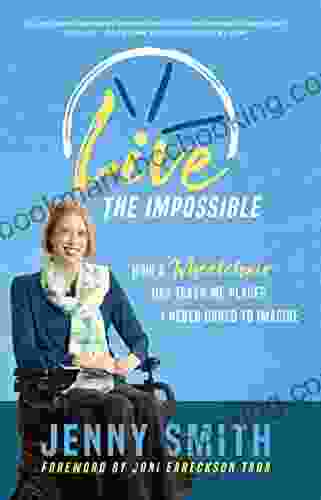
 Harrison BlairA Boundless Journey: How My Wheelchair Empowered Me to Explore Undreamed-Of...
Harrison BlairA Boundless Journey: How My Wheelchair Empowered Me to Explore Undreamed-Of...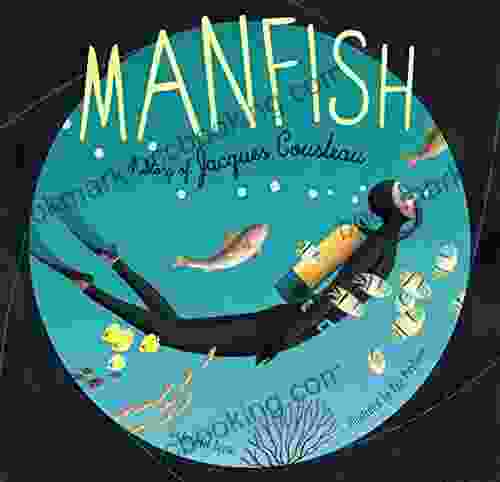
 Harold BlairUncover the Enthralling Life and Legacy of Jacques Cousteau: "Manfish: The...
Harold BlairUncover the Enthralling Life and Legacy of Jacques Cousteau: "Manfish: The...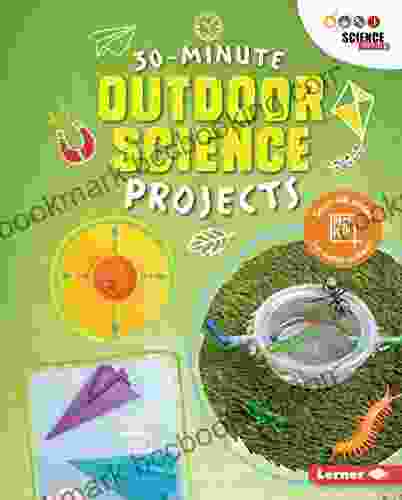
 Alan TurnerUnleash Your Child's Curiosity with "30 Minute Outdoor Science Projects: 30...
Alan TurnerUnleash Your Child's Curiosity with "30 Minute Outdoor Science Projects: 30... Winston HayesFollow ·3.7k
Winston HayesFollow ·3.7k E.E. CummingsFollow ·7.7k
E.E. CummingsFollow ·7.7k Jake PowellFollow ·12.5k
Jake PowellFollow ·12.5k Steve CarterFollow ·11.5k
Steve CarterFollow ·11.5k Ken SimmonsFollow ·18.8k
Ken SimmonsFollow ·18.8k Vernon BlairFollow ·7.9k
Vernon BlairFollow ·7.9k Bill GrantFollow ·8.3k
Bill GrantFollow ·8.3k Adrien BlairFollow ·5.1k
Adrien BlairFollow ·5.1k
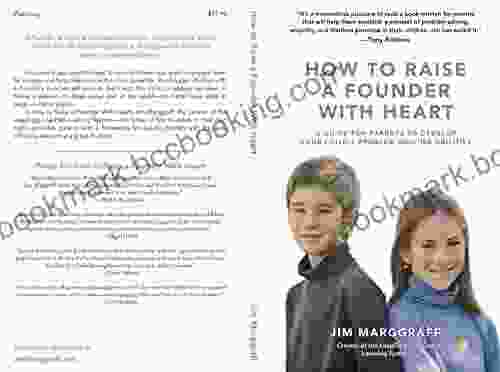
 Patrick Rothfuss
Patrick RothfussGuide for Parents: Unlocking Your Child's Problem-Solving...
As a parent, you...
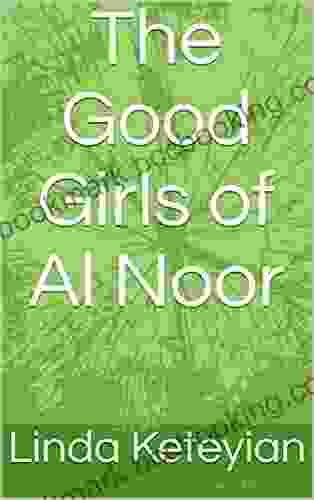
 Ignacio Hayes
Ignacio HayesThe Good Girls of Al Noor: A Gripping Tale of Hope and...
On March 15, 2019, a...

 Lee Simmons
Lee Simmons50 Games and Activities for All the Turkeys at Your...
Thanksgiving is a time for family, friends,...
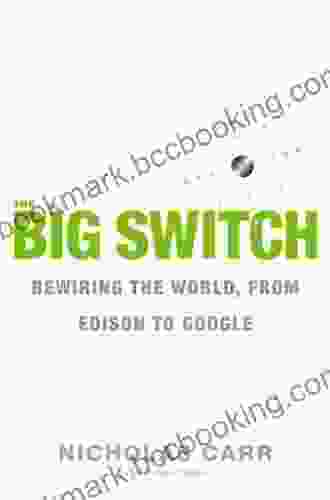
 Sean Turner
Sean TurnerRewiring the World: From Edison to Google - The...
A Captivating...
4.7 out of 5
| Language | : | English |
| File size | : | 862 KB |
| Text-to-Speech | : | Enabled |
| Screen Reader | : | Supported |
| Enhanced typesetting | : | Enabled |
| Word Wise | : | Enabled |
| Print length | : | 293 pages |


